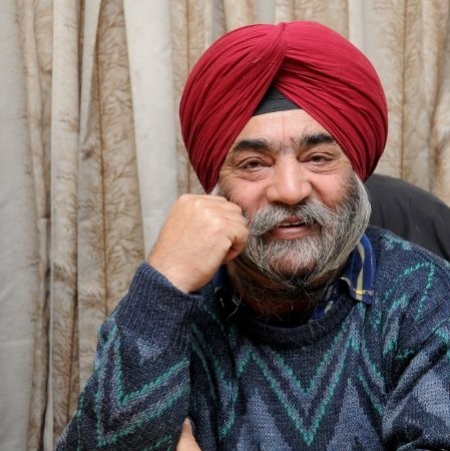30

Today's Edition
New Delhi, 30 November 2023
When "Maharaja" of Indian skies "force lands" in trouble?
Prabhjot Paul Singh
Journalism is all about taking a risk to tell your readers the real story of a threat or a dispute held out in the public domain. Last week, I had yet another tryst with destiny by venturing out to fly Air India despite threatening calls by a separatist group to boycott its operations worldwide. The threats looked both menacing and serious, as memories of the 1985 disintegration of Air India flight 182 over the Atlantic region as a result of a bomb explosion are still fresh for members of the Indian Diaspora.
Since Canada figures high on the anti-India list because of recent "provocative incidents" of its soil being used for separatist activities, the Air India boycott threat assumed additional significance and could not be dismissed lightly. Though the Canadian government reiterated that it respected the sovereignty of its longtime friend and trade partner, India, it could not go back on its enshrined principle of freedoms, including free expression of views.
The separatist group Sikhs for Justice, demanding a homeland for the Sikhs, had given a call for a complete boycott of Air India operations worldwide beginning November 19, the birth anniversary of slain Indian Prime Minister Indira Gandhi. It was she who had ordered Indian defense forces to storm the Golden Temple complex, the sancta sanctum of the Sikhs, in June 1984, to flush out Sikh militants operating from there. A year after Operation Bluestar, flight 181 of Air India, which took off from Toronto for Bombay, had all 323 passengers on board, including 22 crew members, perish in a mid-air explosion that shook the world.
After repeated calls for a referendum on the Sikh homeland issue in the recent past, group head Gurpatwant Singh Pannu, in a video released early this month, cautioned Sikhs against traveling by Air India on or after November 19. Though Pannu clarified later that he never intended any "violence," his call was only for a total boycott of India's national flag carrier, which had been brought over by a private company, Tatas.
As the Sikhs for Justice have chosen Canada for most of its recent operations, its cascading effect has been reflected in the rapid deterioration of bilateral relations between the two nations.
Canada obviously does not want a repeat of the 1985 Kanishka disaster. It has ordered beefing up security at all its airports, especially for all operations of Air India, from its soil.
I made my reservation to travel to Chandigarh via New Delhi from Toronto by Air India flight AI 188 on November 24. It was an army of private security agencies that greeted all Air India passengers at Terminal 1 of Pearson International Airport. Each passenger was put through some soft questioning before he or she was allowed to move to the check-in counter.
When I travelled by an elite air carrier of India, which was even without minimum entertainment facilities?
In the present day tech-savvy competitive world, can you imagine travelling in an elite class of atop the Indian air carrier that had blank video screens, was without USB ports, had no wi fi, had used "jugaads" to fix seats in business class with nuts and screws. There were no means of keeping passengers entertained on a 14-hour nonstop flight from Toronto to New Delhi. It was a Boeing 777 300 ER that needed urgent maintenance. More than a decade older aircraft was constantly in operations than taken for long overdue maintenance.



















































































































































































































































































































































































































































































































































































































































































































































































































































































































































































































































































































































































































































































































































































































































































































































































































































































